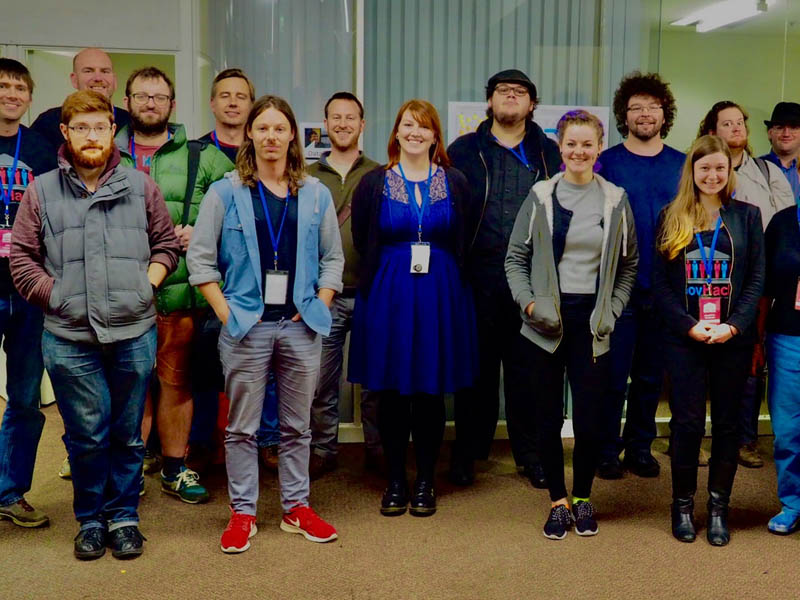With each passing year, GovHack has shown Australia and the world that the civic hacker community is strong, rapidly growing and able to tackle tricky data problems in clever ways.
The world’s biggest annual open data hackathon attracted 3,000 participants across 40 locations in Australia and New Zealand to come up with new ways to drive social and economic value for their local communities. Last year’s GovHack attracted 270 projects from over 2,200 competitors across 31 locations. This year, a whopping 480 projects were submitted.

Since its inception in 2009, the hackathon has grown from strength to strength, gaining support from federal, state and local governments, the corporate sector as well as data geeks from all walks of life.
In 46 hours, participating teams have to create a proof of concept and a video that tells the story of how the data can be reused.
These concepts range from innovative community apps and prototype electronic gadgets, games, stories to informative visualisations and artistic display.
Take this one for example: the ‘SizzleRig’ project involves analysis of bushfire data from national, state and territory governments. Using machine learning tools, The SizzleRig team from Canberra developed a system for rating the threat of bushfire for any location in Australia using historical and real-time data from CSIRO’s Sentinel HotSpots satellite program and ACT Fire Feed.
While the SizzleRig web app’s software-based bushfire visualisation, reporting, and management features will help insurers, policymakers, and citizens make informed choices about their activities in bushfire-prone areas, the team decided to visualise and manage fire in a literal way through building the hardware aspect of this project. A gas-fed device is mechanically operated via an Arduino controller. A column of fire burns bright within a perspex housing, its height controlled by the software. It tells the story of Australia’s relationship with bushfires over the past 15 years.
Other interesting entries include:
- Access Now, a mobile trip planner that informs users of barriers and services on their route, letting them pre-plan and spontaneously change their pedestrian travel throughout their trip
- BinThere, an iOS application designed to help the public find their nearest public bin or to report bins that are full/overflowing, damaged/vandalised, or dog waste stations that have run out of plastic bags
- Community Companion, a device for the elderly, the disabled and the infirmed to engage them and help them to feel less isolated and lonely using single-touch technology and voice output.
Tasked with assessing this year’s projects, which has seen a significant 75 per cent increase, are judges comprising of GovHack organisers, government agency representatives and industry sponsors. More than 90 sponsors are listed on GovHack’s website.
“The sheer volume of projects has swelled up and it’s been very encouraging,” said Richard Tubb, GovHack National Director.
“Our sponsors are amazed by the high level of engagement from the entrepreneurship community. Being on the ground, they were able to witness what the competitors can achieve in the innovation space within a short weekend. This gave them great insights into the amount of value to be had.”
A local Spirit of GovHack prize for the team or individual that displayed the “best hacker” ethos – that is the team who best helped others – was given out on the Sunday night after the competition.
All 480 projects are now being evaluated for the State Awards which will be revealed in six weeks’ time.
Each local winner will then qualify for the GovHack Spirit of GovHack Award announced at the Red Carpet Awards, but only a limited number of participants who demonstrate real ‘GovHack’ Spirit will be chosen to fly to the awards in Adelaide on October 22nd.
Mr Tubb is highly optimistic about the event moving forward. “We won’t stop, we will keep going right through the end of the year. A lot of things that we have been putting in place is to ramp up for next year. We have already started thinking and planning for GovHack 2017.”
Do you know more? Contact James Riley via Email.

